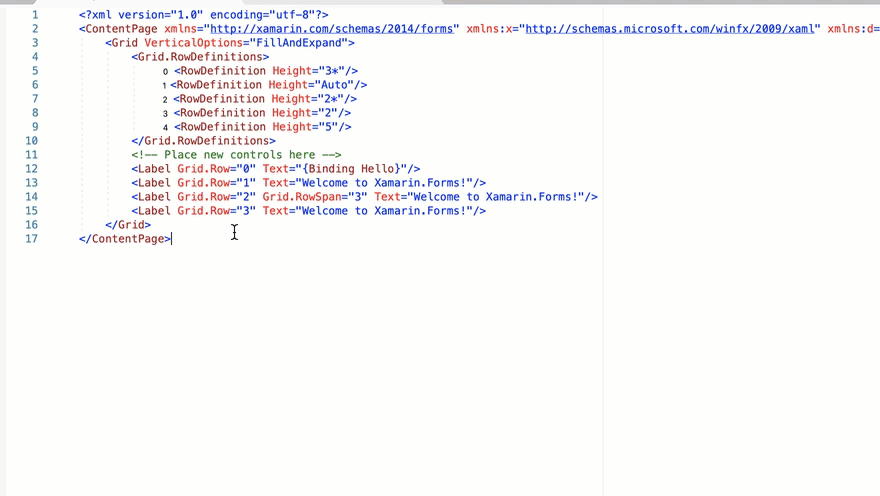Shorthand Declaration Refactorings
Convert row and column definitions between shorthand and longhand formatted declarations
Introduction
Introduced in Xamarin.Forms v4.7, developers are able to declare grid row and columns as a comma-separated list of values within an attribute.
This significantly reduces the amount of code required to declare new rows or columns, making the codebase cleaner and easier to maintain.
For example, consider the example below:
<Grid VerticalOptions="FillAndExpand">
<Grid.ColumnDefinitions>
<ColumnDefinition Width="*"/>
<ColumnDefinition Width="2*"/>
<ColumnDefinition Width="Auto"/>
<ColumnDefinition Width="300"/>
</Grid.ColumnDefinitions>
<Grid.RowDefinitions>
<RowDefinition Height="1*"/>
<RowDefinition Height="Auto"/>
<RowDefinition Height="25"/>
<RowDefinition Height="14"/>
<RowDefinition Height="20"/>
</Grid.RowDefinitions>
</Grid>
With the new shorthand-style declarations, it would become this.
<Grid VerticalOptions="FillAndExpand"
RowDefinitions="1*, Auto, 25, 14, 20"
ColumnDefinitions="*, 2*, Auto, 300">
</Grid>
To help you work with the new methodology, MFractor includes refactorings to convert your grid rows and columns between these two formats:

Important
Shorthand style row and column definitions are only available in Xamarin.Forms 4.7 and above. The refactorings described in this article will not appear in lower versions of Xamarin.Forms.
Convert To Attribute Format
When the grids rows or columns are declared using as Xml nodes, press Alt+Return on the Grid.RowDefinitions or Grid.ColumnDefinitions and choose Convert to attribute format. This will change the declaration to attribute format.
Convert To Node Format
When the grids rows or columns are declared using using the attribute format, press Alt+Return on the Grid.RowDefinitions or Grid.ColumnDefinitions and choose Convert to node format. This will change the declaration to node format.